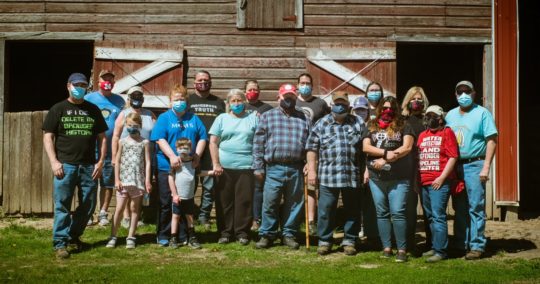We have lots of updates on the pipeline. If you are new to this issue or want some more background, please check out our Resource Page or Action Page. You can also stay up to date with links to LTEs, articles and more by following us on Facebook and Twitter.
Below are updates on the Citizen Hearing, Pipeline Bills, Department of State and county-level board meetings.
Citizen Hearing
The Citizen Hearing held on May 12th was a huge success. Thank you to every Nebraskan who helped organize the event and spoke loud and clear to our elected officials that they are failing in their duty to protect our land and water and that we demand action.
Many news outlets covered the hearing, here is just one of the many great articles written by reporters at the North Platte Bulletin.
Here’s the handout we gave to activists after the hearing. You can use it to find your state senator and his/her office at the Capitol (in case you want to deliver your message in person).
We will be posting the videos of testimony given at the hearing on our YouTube page later this week.
For now, check out this great citizen video (and feel free to email us one you make info@boldnebraska.org).
Pipeline Bills
On the same day of the Citizen Hearing, the Natural Resources Committee voted out one of the three bills focused on pipeline regulations. The bill, sponsored by Sen. Sullivan, was significantly watered down. What started as a bill to keep TransCanada and all future oil companies financially responsible for oil spills, damages to land and more was stripped down to a bill that simply focuses on oil companies paying for “reclamation.”
There is plenty of room (thanks to TransCanada lobbyists writing parts of the bill from what we hear) for oil companies to wiggle their way out of financial responsibility. We will not stop though…we will make sure counties know their role and power in regulating oil pipelines and continue to shine light on the fact that our state elected officials would rather keep TransCanada happy than protect our land and water.
Sen. Langemeier, who chairs the Natural Resources Committee, took failed and weak leadership to a new level when he said that citizens don’t have an effect in the legislative process. His comments and lack of action will surely be noted by voters for any future run for higher office.
ACTION: Email Sen. Langemeier (clangemeier@leg.ne.gov) telling him citizens are the reason we are even talking about the pipeline on a statewide level and that he should apologize.
Please also email Sen. Sullivan (ksullivan@leg.ne.gov) thanking her for being the ONLY state leader who prioritized a pipeline bill that will now (hopefully) have a full debate and vote on the floor of the Unicameral.
Dept. of State Study
The Dept. of State issued their revised study on the pipeline (officially called the Supplemental Environmental Impact Study or SEIS). They had to issue a revised study because the first was was inadequate. The revised one is not much better. Citizen, state agency and federal agency comments on the SEIS are due June 6th.
At that point Sec. Clinton and her staff will review all the comments and issue a final study on the pipeline. There will be another public comment period followed by a final hearing in Washington, DC. Sec. Clinton will then take all of that information and issue a final decision on whether or not the United States will grant or deny the permit request from TransCanada to build another risky tarsands pipeline across the US. We hear the decision will come by the end of 2011.
We want to remind folks that Sec. Clinton has NO ROLE in the pipeline route or other state-based issues. Those critical decisions and need for regulations are in the hands of our state elected officials (i.e. Heineman, Bruning, Unicameral, county officials, etc.).
ACTION: Click here to make an official comment on the SEIS.
Counties Along the Pipeline Route
County boards, mayors and city councils have a lot more power than TransCanada wants them to believe when it comes to laws and oil pipelines. Counties, for example, can pass regulations for emergency response plans (like distance for proper equipment to clean up spills in relation to county).
Merrick County initially voted to send a letter of support for the TransCanada pipeline, but when citziens and landowners raised concerns and asked valid questions, the board did the right thing and postponed their decision until they can get more information.
Holt County will meet on May 16th to hear from TransCanada and landowners on the pipeline issue.
ACTION: Attend county-lelvel meetings on the pipeline or email/call the county supervisors and other decision makers asking them to pass county-based regulations.



